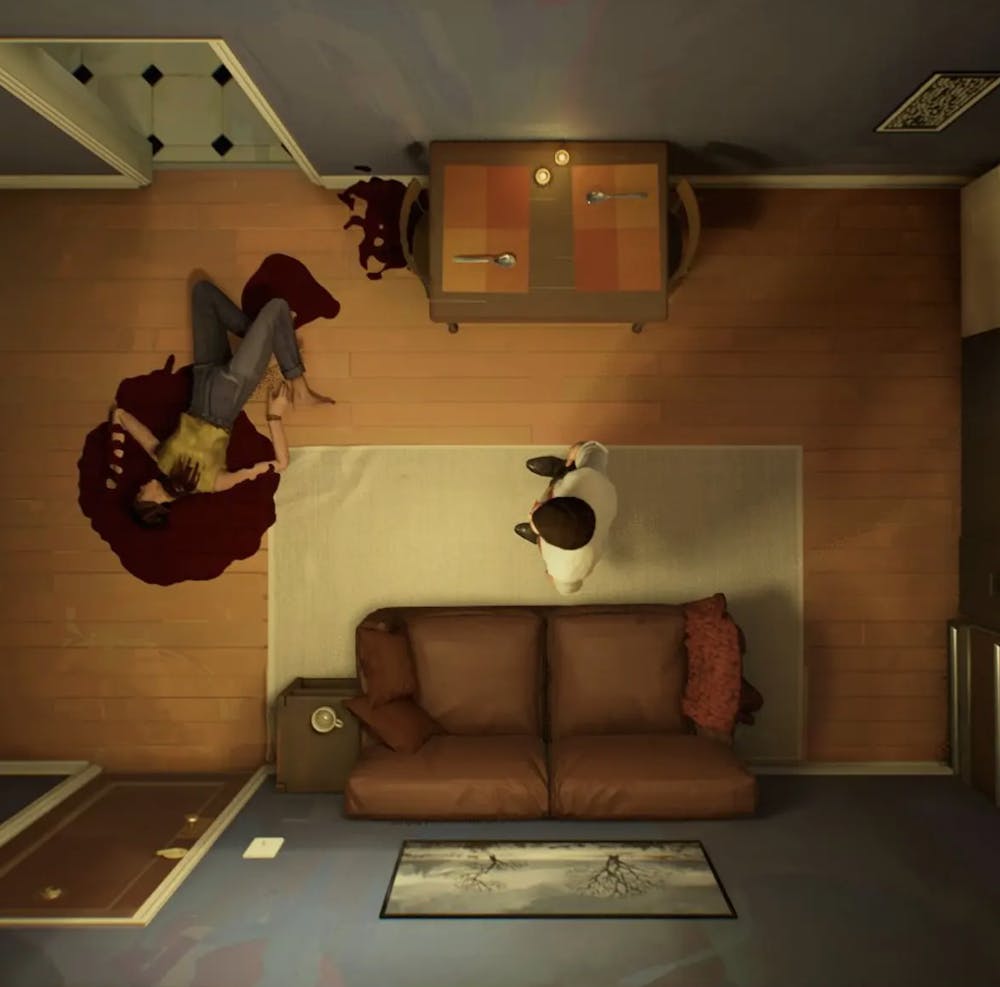Only a few games are noticed by the broader public these days. “Super Mario Bros.,” “Grand Theft Auto” and “Animal Crossing” earned their popularity through engaging gameplay and record-breaking sales. Certain games, like “Cyberpunk 2077,” gain popularity because of a famous actor’s appearance in the game. Keanu Reeves alone can sell millions of copies of a game because star-power attracts audiences from different mediums, and this can also be said of Annapurna Interactive’s new game “Twelve Minutes.”
James McAvoy, Daisy Ridley and Willem Dafoe all star in this drama thriller and breathe life into unnamed characters with peculiar backstories. In the months leading up to its release, “Twelve Minutes” garnered attention because of its notable casting, which proves how important name recognition can be for independent game studios releasing popular and financially viable projects.
On the surface, “Twelve Minutes” is a point-and-click adventure set in a top-down view of a tiny apartment. The unnamed protagonist of this story enters his apartment and is soon greeted by his wife. The wife surprises him with his favorite dessert and news of a baby along the way. The celebration is met with shock, but the protagonist celebrates by taking his wife’s hand and dancing with her. For a few minutes, they enjoy long-overdue quality time together before it’s put on pause by a knock at the door. In a flash, a man enters the apartment, claiming to be police before grabbing the wife and the protagonist and zip-tying them both. He orders the wife to tell him where a valuable watch is, and the wife appears to not know what he’s talking about. After failed attempts to get the information he wants, the man walks over to the protagonist and starts to strangle him. The wife begs, and the protagonist struggles for air, and right when the wife begins to confess, the night restarts with the protagonist only now entering the apartment.
This time loop conceit transforms what otherwise would be a limited story into a mystery filled with puzzle pieces waiting to be put together by the player. The player can interact with several objects in the tiny apartment like knives, photographs, light switches and closet doors to gain information from the wife and piece together why the protagonist is stuck in a time loop with a deranged, violent cop. The game requires several playthroughs to get answers, and every time, the player starts at the beginning, with everyone’s memory wiped out from the previous playthrough, save the protagonist himself. This results in a unique mystery game that teeters between satisfying breakthroughs and frustrating repetition.
Throughout my playthroughs, I picked up items, had several different conversations with the wife and overall experimented with how to solve the mystery of the valuable watch and the larger time loop dilemma. Some moments proved to be intriguing and exciting as I figured out which items go together and what dialogue options gave the most information. However, there were instances where I got stuck and couldn’t figure out what my next approach should be. The player has only a few minutes before the night resets, which means spending too much time exploring or experimenting could result in a useless and frustrating playthrough. Thinking ahead is integral, as blindly going through each playthrough can feel maddening if you’re not making any progress.
While the game offers a lot of story branches and unique narrative sequences, I often felt limited in the way I could progress in the story. I was led astray sometimes through my own curiosity, but even when I wanted to figure out what information was necessary, I needed to take specific, step-by-step actions that were often not obvious unless you explored every nook and cranny and dealt with the repetitious nature of every playthrough. I was frustrated with how long it took me to get from one story beat to the next, but the fact that I wanted to keep persevering is indicative of the fascinating story and gameplay that “Twelve Minutes” puts on display in its tiny apartment setting.
“Twelve Minutes” is a cinematic experience worth your time. The game’s first few hours feel like an escape room filled with unique mysteries and trinkets to enthrall any puzzle lover. Frustration creeps in once the pieces you have keep getting scrambled with each playthrough, and the feeling of progress after a narrative breakthrough can quickly fade as you hit another roadblock. The story has a lot of high points, and while it stumbles near the end, the narrative shouldn’t detract anyone from giving this game a go. Test your critical thinking skills with this mystery box and watch the story unfold as the clock strikes twelve time and time again.
Get The Chronicle straight to your inbox
Signup for our weekly newsletter. Cancel at any time.

